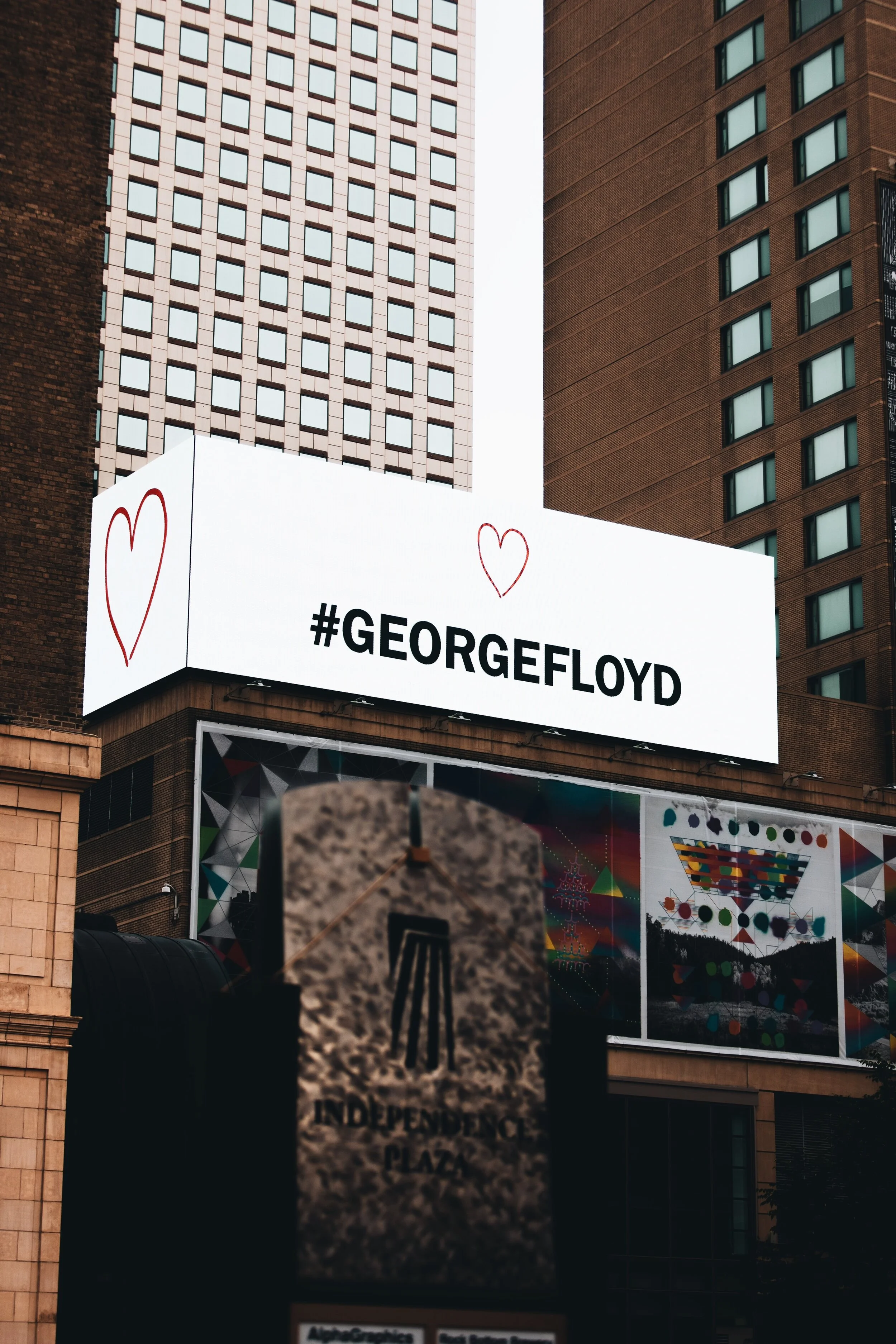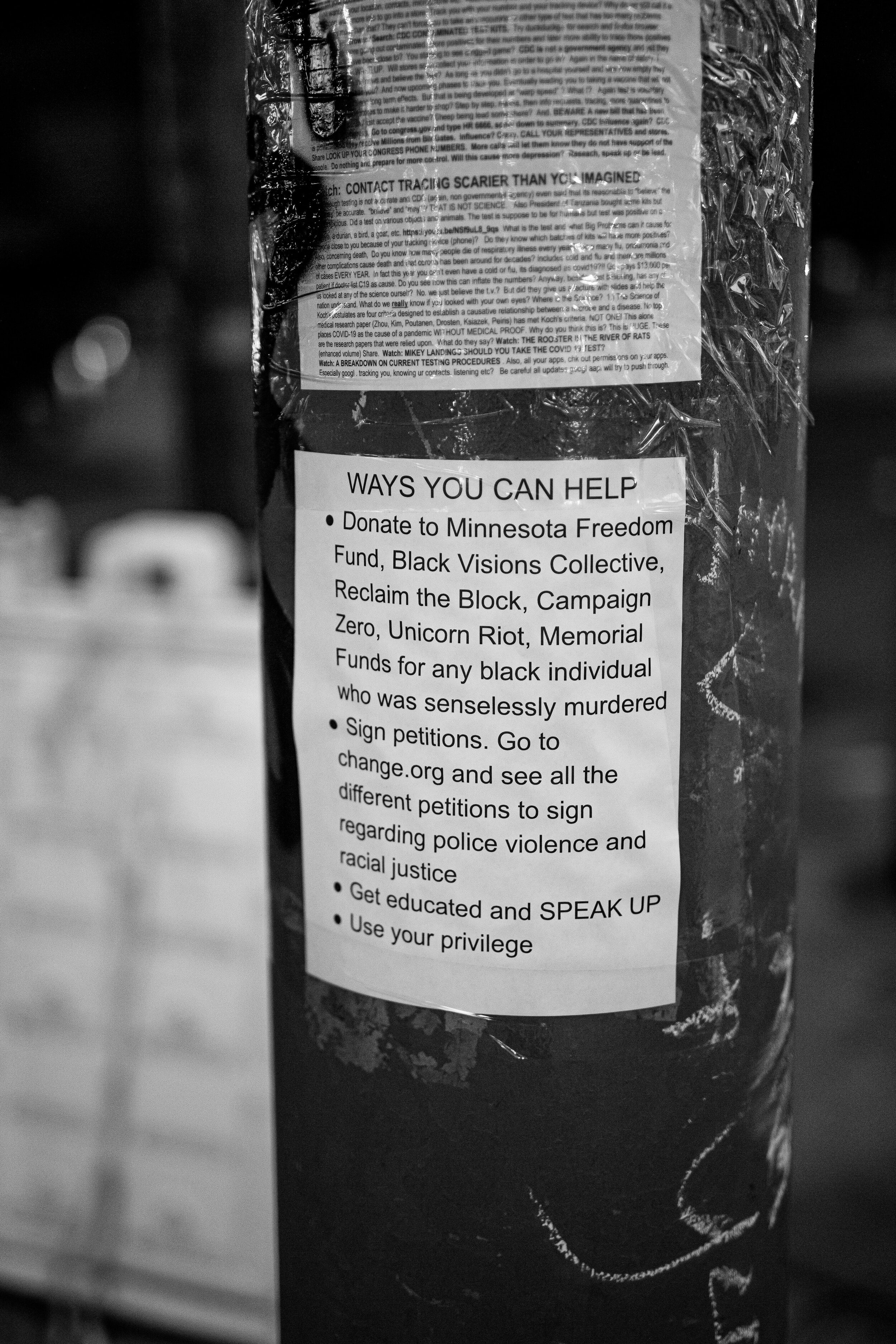Unknown To Us
I grew up in Dublin in the 80’s. I knew only one black girl, who lived opposite my auntie. I thought she was so beautiful.
I didn’t see her for years until our paths crossed again at our kids’ school.
She is still beautiful.
But that sounds wrong, doesn’t it? To say she is beautiful. It sounds as though I am speaking of her as an ‘other’. I know it’s wrong. But that fact remains; she is a beautiful woman, and she was the only black person I knew of growing up in a mainly whitewashed nation.
Ireland is a late bloomer in terms of many human rights. We were not exposed to a diversity of belief, skin, gender, sexuality until very late in the game. Or, we were - we just didn’t look.
As a nation though, we too have been the victims of intense racism ourselves, “no blacks, no Irish” remember that? Our two races categorised together as inferior for a long time.
Many say, it’s because of that - our mistreatment and reduction as a race, that has made us tolerant, more kind. More understanding of ones who are unknown to us.
Now, I’m not sure we are entirely there yet. We are getting better, for sure. There has been an opening of hearts and minds on a national level to our LGBTQ people, and for women’s bodily rights lately, and that has been inspiring, but there is a lot we still don’t get right. As a nation, we need to look hard and openly at our Direct Provision system and those within it. Are we hearing their stories, their voices? Are we forcing any change?
If we feel a separation from something, as humans we find it hard to bring it into our psyche; into our day-to-day. A seminal event in the 1980s was Live Aid, it was only due to Geldof’s tenacity and outraged, impassioned truth-telling that we saw the images of the famine and the immense loss of life. It took TV imagery, on repeat, of tiny babies starving and dying at their mother’s breasts to make people reach into their pockets to assist. Reach in they ultimately did, but it still felt ‘far away’ and a bit too different from the lives they knew to log the real human toll of it.
They liked the pop concert though...
People looked through their fingers. Looking but not seeing.
And went back to their lives.
Not feeling anything but a sort of dull ache that they couldn’t define.
***
As I’ve been watching and reading the news and devouring social media commentary on the terrible trouble in the US, I’ve been thinking so much about what needs to change.
I am thinking about the reasons why this racism and resulting violence is happening. About the horror and injustice, about George Floyd…
I am thinking a lot about the media and how they control the narrative. About the responsibility that media has, that code of ethics, a duty of moral care, to keep citizens fully informed of what is happening with a non-biased view. And I am thinking about how they don’t do that. I am thinking about how wrong this is, that some networks report solely about volatility and aggression on behalf of black people when it is the white people who were the instigators - the original aggressors. I am thinking about how that message is being diluted and how bulletins on looting and fighting are taking prominence.
They are not covering that striking image of the black men, arms linked in a chain, circling a white police officer separated from his troop, protecting him from certain violence - no, that ruins the narrative, right? Not great for ratings. Or elections.
Black people are bending their knee now in protest. But it was Derek Chauvin who used his knee first.
To take an innocent black mans’ life.
And enough is enough.
Last night, as I lay in bed, I thought more about people feeling ‘separate’ or ‘apart’ from this, and how this could possibly be helped in terms of empathy and action. I went looking for some insight from Martin Luther King. Of course, I found it. He said,
“ Men often hate each other because they fear each other; they fear each other because they don’t know each other; they don’t know each other because they cannot communicate; they cannot communicate because they are separated”.
And it lit a light for me. Not an excuse or a way to explain it away; a light…
We fear what we don’t know.
The challenge is to learn to know…
People like us in Ireland, living in peace, full to the brim with white privilege and unconscious bias, myself included, need to watch EVERYTHING. It’s not easy - it’s harrowing. It is longstanding systemic oppression that affects people who are the exact same as us white people, bar the colour of their skin.
It could be us.
It once was us.
Women’s rights, gay rights, disability rights - all fights for rights are the same - they are the fight for human rights.
And yes, there is a lot of talking online about the phrase Black Lives Matter and its correct usage or sentiment. There is a call to say All Lives Matter. But here’s the thing: yes, all lives do matter, but this current trauma is being subjected to black people. By white people. The wound is originally theirs. It is a deep wound and it’s an old one. It would reduce and negate their suffering by lumping all the rest of us in with them to say we feel the same. We don’t. We have no idea what it feels like. Saying that would miss the point entirely - making us deaf and blind to it all.
As usual.
***
I remember being struck by a Churchill quote I once heard, himself not exactly a paragon of virtue in terms of racism, however, it said,
“ Courage is what it takes to stand up and fight - it is also what it takes to sit down and listen”.
And that feels important to me.
Reconciliation processes that have occurred over time in places like South Africa and the North of Ireland have helped with visceral societal and generational pain and unrest. Not removed it, as that is impossible, but it has helped. Mediation on a grand scale takes a long time, but it starts with the coming together of the sides. It starts with each side being able to say what they fully feel without interruption or judgement. Each side free to speak until they run out of breath. What is required then is strong, true, wise, compassionate, unbiased leadership to guide the way to peace whilst being bound by the principals of justice and redress.
The US is a long way from that right now. There is no such leadership. Yet.
***
For Irish white people, we can not understand what this feels like for black people. Or indeed, for the compassionate, open-minded, supportive white people, and people of other races, in the US, who are trying to help soothe matters over there.
We don’t understand this particular pain.
Because it is unknown to us.
And we can turn off the TV, or put down the phone and go back to our sunny bank holiday in the garden.
But here is the thing: we must make it known to us as best we can.
***
Unconscious bias is defined as this by the University of California’s office of Outreach and Diversity:
“Social stereotypes about certain groups of people that individuals form outside their own conscious awareness. Everyone holds unconscious beliefs about various social and identity groups, and these biases stem from one’s tendency to organise social worlds by categorising. Unconscious bias is far more prevalent than conscious prejudice and often incompatible with one’s conscious values.”
So, unconscious bias is exactly that: unconscious. It is a function of our brain to organise information in our minds into categories - it lets us down as human beings though and does not often file these categories according to social correctness.
But isn’t a conscious life what we all want so dearly?
The Holy Trinity of self-awareness, self-acceptance and self-love is one we all aspire to as we grow a bit older - well it’s time to look beyond oneself a bit.
And see others. And make them known to us.
We may not understand, but our duty is to stand up when something is unjust.
Black Lives Matter.
Open hearts, minds and arms matter.
Be conscious. Be awake.
Stand for something.
Shout for something.
Do all you can and give it all you have.
***
Final words go to Rosa Parks, a regular black woman who was in her 40’s in 1955 when her small act of strength changed the course of the world - giving a global focus to the rise to the of the civil rights movement and introducing the world to a young unknown minister, the Rev. Martin Luther King Jr…
"People always say that I didn't give up my seat because I was tired, but that isn't true. I was not tired physically, or no more tired than I usually was at the end of a working day. I was not old, although some people have an image of me as being old then. I was 42. No, the only tired I was, was tired of giving in."
Ellie Balfe, May 2020.
(imagery by Clay Banks, Logan Weaver and Donovan Valdivia, used with thanks)
join us in conversation
we’d love to hear from you…






















